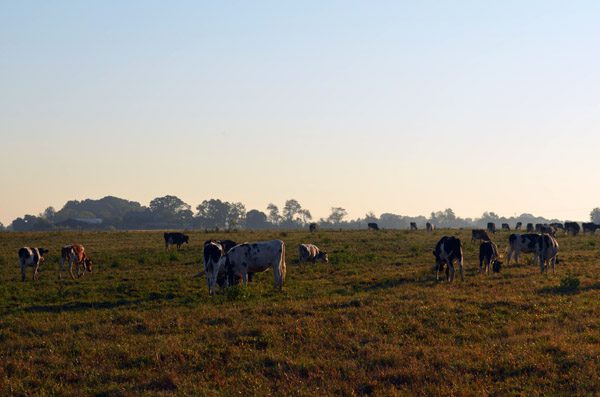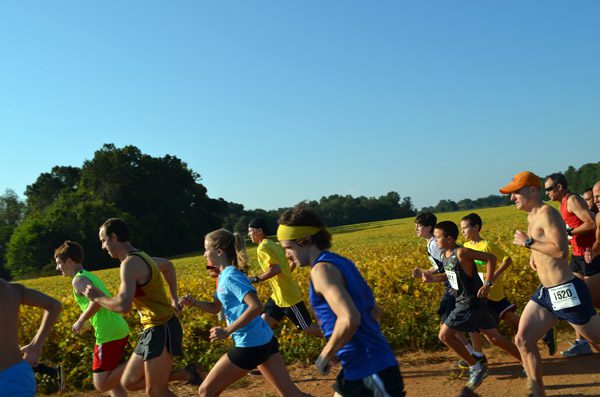Got milk? Got land? N.C. farms dwindle

Many people are surprised to learn that agriculture is the No. 1 industry in the state. However, North Carolina is losing farmland faster than any other state – and the number of dairy farms is down dramatically.
Agriculture is estimated to be worth more than $70 billion annually to North Carolina’s economy. Agriculture and agribusiness make up more than 20 percent of the state’s income and 17 percent of the state’s work force. And forest products are the largest manufacturing industry in N.C.
Farmland is also beneficial to the local tax base. It is estimated that farmland represents a net gain of 63 cents of revenue for every tax dollar received by local governments, whereas for every dollar received from residential development, governments pay out $1.19 in expenses for such things as emergency services, education and infrastructure like roads (American Farmland Trust, Cost of Community Services Study, 2006).
Unfortunately, North Carolina also leads the nation in loss of farms. Between 2002 and 2007, our state lost more than 6,000 farms and approximately 600,000 acres of farmland, land roughly the size of Sampson County, the state’s biggest county. Dairy farms are quickly disappearing in the state. In recent years, North Carolina has gone from 2,400 to 460 farms with milk cows, a loss of almost 80 percent. Similarly, from 1990 to 2002, the state lost 1 million acres of forest land.
approximately 600,000 acres of farmland, land roughly the size of Sampson County, the state’s biggest county. Dairy farms are quickly disappearing in the state. In recent years, North Carolina has gone from 2,400 to 460 farms with milk cows, a loss of almost 80 percent. Similarly, from 1990 to 2002, the state lost 1 million acres of forest land.
Farmers are getting older. The average age of the American farmer now is 57, and in recent years the percentage of farmers under age 25 has dropped by 20 percent, with a corresponding 30 percent increase in farmers over the age of 70. Without a younger generation ready to learn and work on farms, the institutional knowledge of the older generation is disappearing.
Poor transition planning is another threat to farms. Farmers’ major asset –land –often gets divided among heirs, threatening the viability of the farm. Land conservation can be an important part of the transition planning process.
Because of this growing loss of farms, one focus of the LandTrust for Central North Carolina is farmland preservation. The Federal Farm and Ranchland Protection Program and the N.C. Agricultural Development and Farmland Preservation Trust Fund are grant programs that will provide funds to buy conservation easements from farmers to protect farms in perpetuity.
Last year the LandTrust was able to obtain funds from those two agencies to work with farmers in our region to protect two significant dairy farms: The HaHo Dairy in northern Iredell County and the Hoffner Family Dairy in Rowan County. The HaHo Dairy is a nearly 500-acre centennial farm, with some of the earliest no-tilled farm fields in North Carolina. 
The Hoffner Dairy is a 261-acre organic dairy in western Rowan County that operates under an agreement with Organic Valley. This beautiful farm was the gracious host to our first Dairy Dash 5K Trail Run in September. Nearly 200 people came to run the farm roads and trails on a gorgeous early fall day. The farm will be forever preserved thanks to the dedication of the family and the farmland programs at the federal and state level.
Farmland preservation has many benefits. By protecting local farms, we preserve our agricultural heritage; maintain the ability to access healthy and fresh local foods; protect scenic views and rural character; and, conserve wildlife habitat, clean air and water quality. Preserving our farming heritage is truly an investment in our present and our future.
Views expressed here are the author’s and not necessarily the views of the UNC Charlotte Urban Institute or the University of North Carolina at Charlotte.